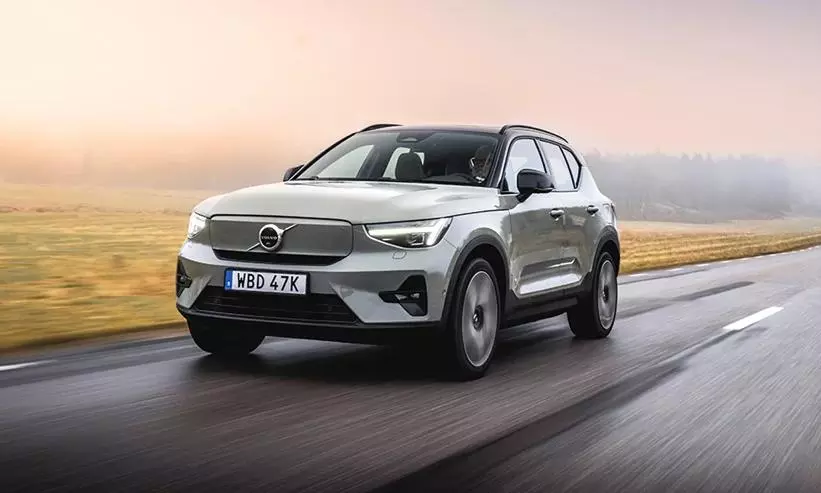Volvo uses Maersk ECO delivery to reduce GHG footprint
For ECO Delivery Ocean, Maersk substitutes fossil fuels with second generation biodiesel based on waste feedstocks

Swedish car manufacturer Volvo Cars will cooperate with, among others, Maersk to reduce its global greenhouse gas (GHG) footprint from seaborne logistics.
"For its decarbonisation product ECO Delivery Ocean, Maersk substitutes fossil fuels on its ships with second generation biodiesel based on waste feedstocks to reduce the greenhouse gas emissions of customers’ ocean transport directly in the ocean supply chain, i.e. without compensatory measures like offsetting," says a release from Maersk.
With almost 15,000 containers under Maersk ECO Delivery Ocean, Volvo Cars will reduce GHG emissions by 28,000 tonnes within the next twelve months, the release added. "Maersk’s ECO Delivery Ocean solution will be used for inbound ocean container transports of production material destined for Volvo Cars’ manufacturing plants based in China, Europe and the Americas as well as spare parts distribution made globally by ocean container transports. The first ECO Delivery transports commenced in June."
Birna Odefors, Managing Director, Nordics, Maersk says: "Volvo Cars and Maersk have a target to reduce their total greenhouse gas emissions to net zero by 2040. Sharing this ambitious pace in decarbonisation, we are joining forces to maximise the progress towards net zero supply chains. We are delighted that Volvo Cars have selected our ECO Delivery Ocean solution, because we can reach our goals only together with our customers. These close collaborations are essential in order to deliver on our ambitious, mutual decarbonisation goals."
Javier Varela, Chief Operating Officer and Deputy CEO, Volvo Cars adds: "Renewable fuel is not the end game for removing CO2 from the world’s ocean freight needs. Yet, this initiative shows that we can act now and implement solutions that achieve significant results during the wait for long-term technological alternatives. We want to spark other car makers into action as well, to increase demand for carbon efficient ocean transports and to establish renewable fuels as a mid-term solution that works. We all have a responsibility to act."
“We don’t view this initiative as a competitive advantage. On the contrary, we want to spark other car makers into action as well, to increase demand for carbon efficient ocean transports and to establish renewable fuels as a mid-term solution that works. We all have a responsibility to act.”
Volvo has been working on this initiative with logistics partners Maersk, Kuehne+Nagel and DB Schenker. "These logistics service providers have, from June 1, 2023, switched to renewable fuel for equivalent energy needed for all container transports done for Volvo Cars.
"When renewable fuel is not available on a specific shipment, our renewable fuel allocation is instead used by the logistics partner for another customer’s route elsewhere, so the overall cut in fossil fuel use is kept on par with actual use in container vessels. The methodology, called mass-balancing, is third-party audited regularly. The renewable fuel itself is certified and not produced in competition with food crops. It is therefore sustainable in accordance with the EU Renewable Energy Directive."
Varela adds: "The list of initiatives keeps growing as we work towards our ambition of becoming a climate neutral company by 2040.”



